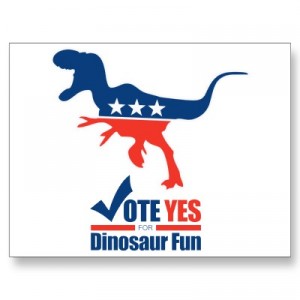Speculative Politics
 It’s election day here in the U.S.A, which has a lot of people’s focus honing in on politics and anticipating the end of the ever-so-loathed election-year ads on television.
It’s election day here in the U.S.A, which has a lot of people’s focus honing in on politics and anticipating the end of the ever-so-loathed election-year ads on television.
In the realm of speculative fiction, politics has often played a major role in some beloved stories. Sometimes the political intrigue is overt and the main conflict, while at other times it is merely a set-piece to give flavor.
As a writer it’s important to take into account what kind of political system you want to have running in your story-world as the political makeup is an extension of the culture and will have a large impact on how your characters see their world.
For instance how different would your hero look at the world were he in a society of feudalism as opposed to a theocracy? What if he was from a socialistic society vs. a unashamedly capitalist one?
In Starfire I went with a pseudo-capitalist, militaristic Empire for my hero’s homeland. One built on a loose caste system where your birth order determined where you started out in life. With Starfire being more of an action/adventure story out in the wilds of the northern continent, the political intrigues never really came to the forefront, but rather just danced around the edges providing some points of conflict and motivations for the characters. Thus driving the decisions that the main character, Rathe, had to wrestle with in deciding what fate he chose to embrace.
What political systems have stood out to you in your readings?
And if you’re in the U.S. today, make sure you go vote.




































Hey Stuart, in the middle of your book Starfire and still not sure which way to vote on Karey Or’s fate lol (she needs to go for the good of the many, but I really like her and don’t want to see her destroyed *sigh*).
In my own fiction, I juggle between a couple forms of government depending on the country. The culture and history have shaped the form of government those countries have taken on.
For most fantasy, the “politics” range from monarchy to oligarchy, and very little emphasis on political systems such as democracy (or representative republic) or even theocracy. The latter, especially, is something I hope to explore, especially because most people today seem to think that “imposing theocracy” is to be feared. I would agree with them, to be sure — only Christ Himself should bring in theocracy, when He returns! — but too many people seem to think that trying to persuade is the same as trying to wage a Crusade.
That brings a related point: can a Christian, in his fiction, attempt to include some elements relating to modern political issues? Liberals, conservatives and everything in between usually come off very propagandistic when they do this. Thus many Christians will say unqualified things like “just let the story run things, and leave out agendas.”
But it certainly hasn’t much hurt James Cameron (on the left) or the Left Behind series (on the right). Each of those, in very different camps, included political agendas in their works. However, I would argue Cameron’s 3D blue-people movie (I decline to call it by its title, which is reserved for the last Airbender), though clearly more popular, was more propadandistic and yet didn’t get criticized enough for that. For this reason, it seems Christians ought to feel free to include political views in their stories, though optimally they’ll be integral to the story itself, and not tacked-on.
Yet as with our real-life books, beliefs and conversations, it would seem Christians’ views on politics, either expressed or kept to ourselves, should be grounded in Scripture — and that is a Christian’s priority. Discussing in fiction the difficult truths and debates of foundational moral issues seems much more timeless, memorable and effective.
As far as I can see the fiction which deals mostly with political systems is the strand of utopia/dystopia. Those books are usually making some kind of point about the world. I get the impression that many writers take to speculative fiction to get away from the everyday world. Why would they take its politics with them?
The fantasy end seems to have a similar kind of political system for their worlds. It involves natural authority (“the true king”). There are princes and princesses. These people have their role by right of birth. Nobody gets elected as princess.